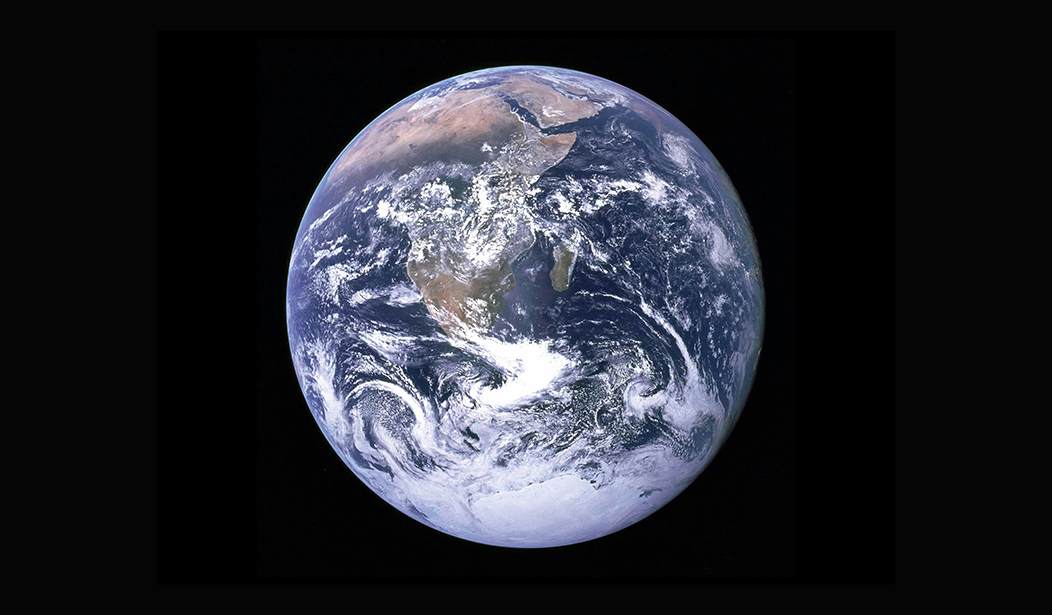My father was a big fan of the Socratic method of conferring lessons. (Dad, unlike most folks today, had actually read Socrates.) Starting from the time I was a little tad, whenever I wanted to know something, he would prod with questions, and together we would pick apart my answers, which would lead to more questions and, usually, some conclusions. He did this throughout the 57 years I shared my life with him, and even now, once in a while when I'm pondering some issue or problem, I hear the Old Man's voice: "Have you thought about X, Y, or Z?" Or "Why do you think that? Based on what facts?"
And, I confess, I do that with my kids and grandkids, too. It's a great technique; some of those old Greeks, it seems, really did know their stuff.
With this in mind, you'll understand why I found this piece interesting, from an X thread by "Watts Up With That" guest blogger, Chris Martz. The publication wrote a preamble to the questions:
As we’ve noted routinely at Climate Realism, the media is so incompetent at even basic science, they’d never be able to answer these fundamental climate questions. If they were able to, we’d see balanced and accurate articles about climate issues rather than the usual doom-laden scare stories about a nonexistent “climate crisis” that we see nearly every day.
Let's take a look at some of those 10 questions; as you will have guessed, I have some thoughts as well.
1) You claim that the Earth is overheating. That it’s “too hot.” So, what is the correct global mean surface temperature (GMST) for life on Earth and why?
Please provide a numerical answer. Use units and round it to the nearest tenth of a degree Celsius. Then, explain why that value is ideal and cite evidence to justify your answer.
I've been saying this for years. It seems the height of human hubris to assume we know what the planet's "correct" temperature is, or should be. The Earth's climate has changed wildly over the 4.55 billion-year history of this little blue ball. Even in the last 100 million years, it has been variable, and through most of the planet's history, it's been warmer than it is now. In the Cretaceous, Antarctica (which, to be fair, was not at the time directly over the pole, although it was close) was covered in temperate forest. In the Eocene, there were tropical forests in Germany. In the Oligocene, there were no polar ice caps.
2) What is the correct atmospheric CO₂ level for life on Earth? What is best to optimize our agricultural productivity? What CO₂ level will make da weatha less scary?
Give your answer as an exact value as a mole fraction or volume percentage, and then explain why that value is ideal.
They can't, of course; even as the climate has changed wildly, so has the CO2 content in the atmosphere. But it gets worse:
3) What exactly makes CO₂ “pollution”?
The EPA considers CO₂ to be a pollutant, legally speaking, under the Clean Air Act, and their scientific justification is simply that, it “…𝑐𝑜𝑛𝑡𝑟𝑖𝑏𝑢𝑡𝑒𝑠 𝑡𝑜 𝑔𝑟𝑒𝑒𝑛ℎ𝑜𝑢𝑠𝑒 𝑔𝑎𝑠 𝑝𝑜𝑙𝑙𝑢𝑡𝑖𝑜𝑛 𝑡ℎ𝑎𝑡 𝑡ℎ𝑟𝑒𝑎𝑡𝑒𝑛𝑠 𝑝𝑢𝑏𝑙𝑖𝑐 ℎ𝑒𝑎𝑙𝑡ℎ 𝑎𝑛𝑑 𝑤𝑒𝑙𝑓𝑎𝑟𝑒.”
That’s pretty ambiguous.
Because by that measure, water vapor should also be classified as a “pollutant” because it’s also a “greenhouse gas” (GHG) — it’s also the most abundant and potent GHG; it absorbs a wider spectrum of IR wavelengths than CO₂.
But, water vapor, even the most fanatical climate scold will point out, is essential to the hydrocycle! Water vapor makes rain and snow, without which the vast majority of the Earth's land surface would be barren desert. But if CO2 drops below a certain level, plants - producers - die, and that will likewise reduce the vast majority of the Earth's surface to barren desert.
See Related: Climate Scolds Peddle Misinformation, Not Science
2023 Was a Warm Year - Here's Why (Hint: It Wasn't Just Us)
But it's question number six that really jumps out:
6) If we spend $75 trillion to decarbonize the economy by 2050, by how much will it reduce the GMST by the end of the century? Please provide your answer to the nearest tenth of a degree Celsius and show your calculations.
What does the perfect climate look like? How will we know when we get there? By what measure?
Ay, that's the rub.
Economist Thomas Sowell - one of my personal heroes - points out that two questions that must always be asked when considering policy proposals are "To what end? At what cost?" Those who would propose decarbonizing our economy, which would involve either a massive decrease in the energy supply or a massive increase in the building of nuclear reactors - another thing that the climate scolds oppose - can not honestly answer either of these questions. These proposals would send $75 trillion - over twice the current United States federal debt - down a deep, dark hole of corruption and cronyism without any effect on the climate worth measuring.
Because the climate scolds can't answer question number one, they can't answer what the perfect climate should look like. And that's the problem; they cannot even describe their desired end state. They cannot describe a goal. They only have vague generalities, no specifics.
Next time you encounter a climate scold - perhaps at Thanksgiving, when you're subjected to lectures by some of your liberal relatives - try asking them some of these questions. Maybe a little bit of the Socratic method will make them think a little bit about their stances. Then, again, it may not - but it might be fun anyway.














